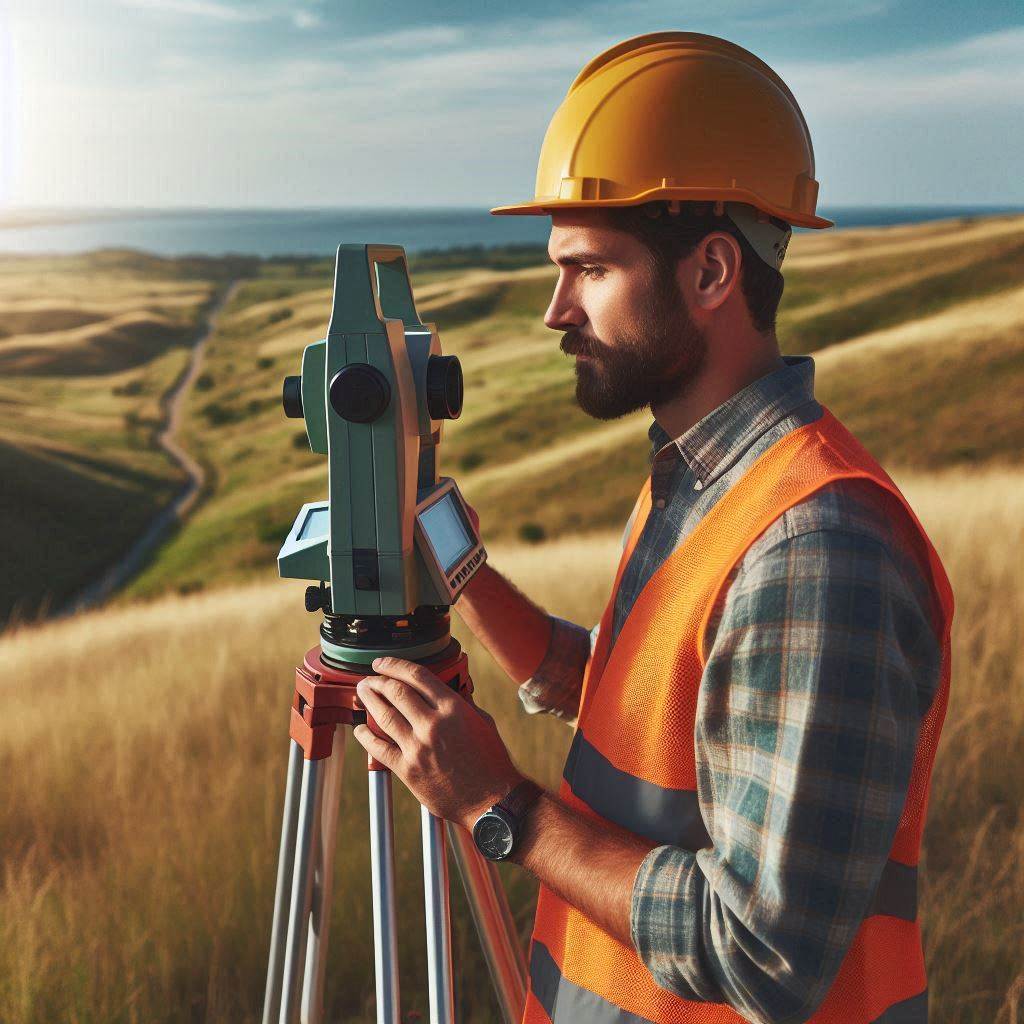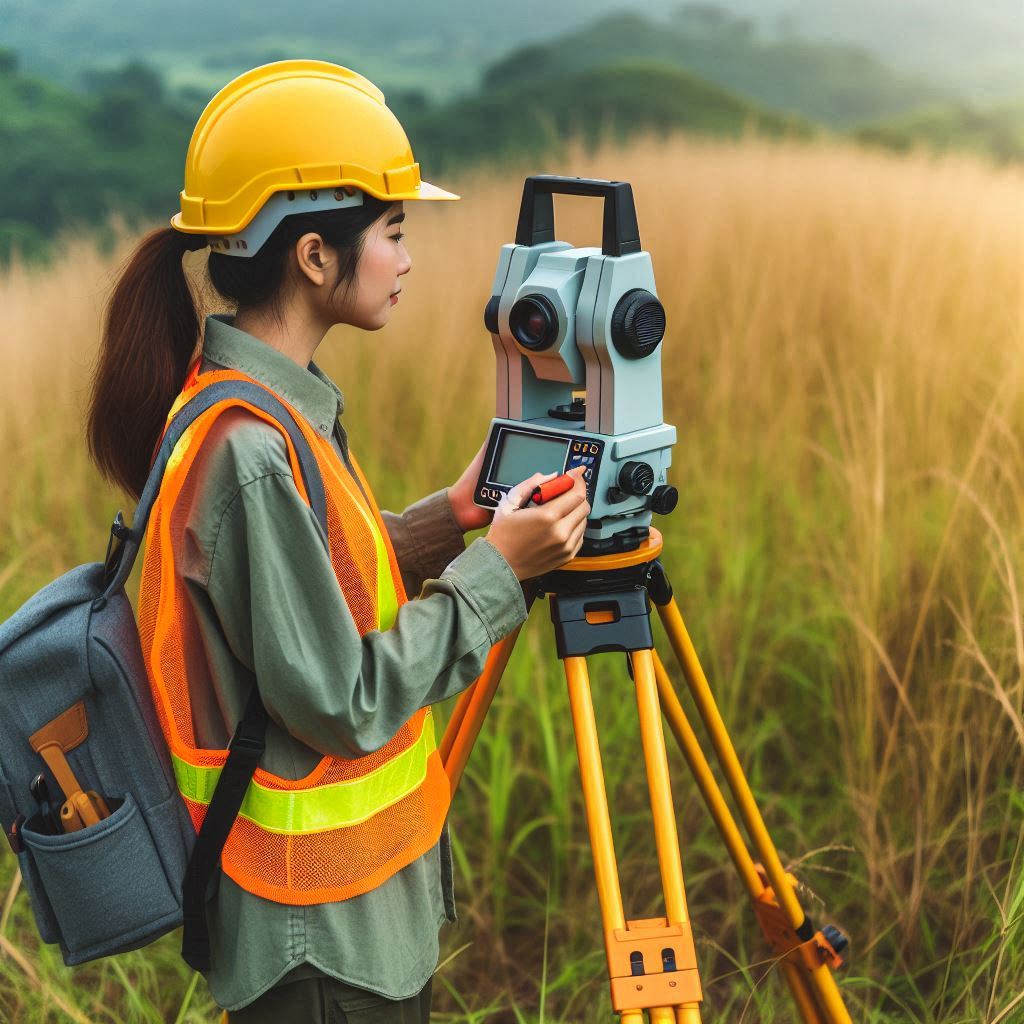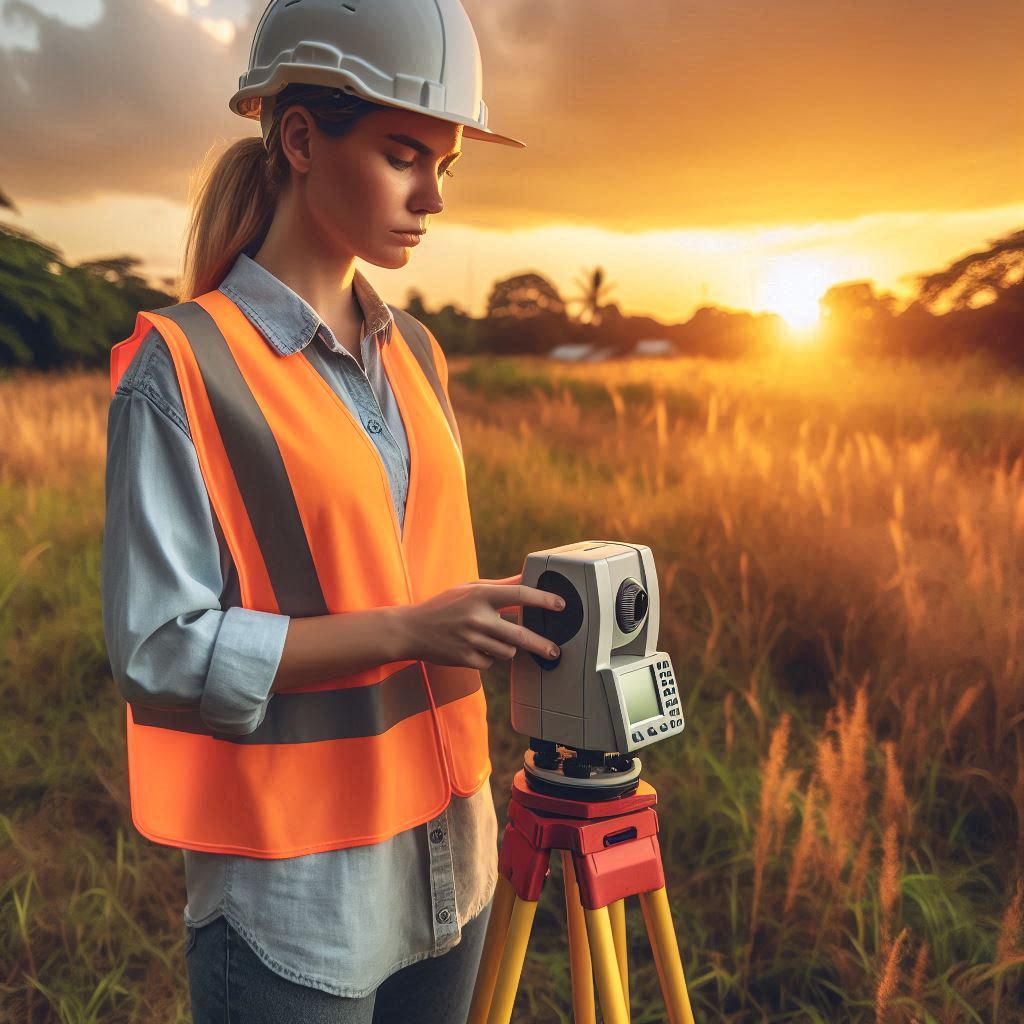Introduction
Surveying and mapping technicians play a pivotal role across multiple industries.
They provide essential data that supports planning and development.
Their work ensures that projects are built accurately and efficiently.
From construction sites to environmental assessments, their expertise is crucial for success.
These professionals use advanced technology to measure land, create maps, and analyze spatial data.
They work on everything from new infrastructure projects to land surveys and natural resource management.
Their accurate measurements and detailed maps guide engineers, architects, and planners.
Without their expertise, projects could face significant delays and cost overruns.
The job market for surveying and mapping technicians is competitive.
Many industries rely on their skills, increasing the demand for qualified professionals.
As technology advances, the need for technicians who can operate sophisticated equipment grows.
Additionally, there is a constant need for precision and reliability in their work, making the field both challenging and rewarding.
Securing a role in this field requires not only technical skills but also a strong understanding of industry standards and regulations.
Candidates must demonstrate their ability to handle complex tasks and adapt to new technologies.
With many qualified applicants vying for positions, standing out becomes essential.
Research the Company
Importance of Researching the Company Before the Interview
Researching the company before your interview is crucial for several reasons.
It shows your genuine interest and helps you stand out.
Being well-informed allows you to answer questions confidently and accurately.
You demonstrate that you‘ve put in the effort to understand the company‘s mission and objectives.
Understanding the company’s values and recent projects can significantly impact your performance.
It enables you to connect your skills and experiences with what the company is currently doing.
This preparation can make a big difference in how you‘re perceived during the interview.
How to Gather Information About the Company’s Projects and Values
Start by visiting the company‘s official website.
The “About Us” section often provides insights into the company‘s mission, vision, and core values.
Look for sections detailing recent projects or achievements.
This information is typically found under headings like “News,” “Projects,” or “Our Work.”
Next, explore the company‘s social media profiles.
Platforms like LinkedIn, Twitter, and Facebook are excellent sources of current updates.
Follow their pages to see posts about new projects, partnerships, and industry news.
These updates can offer valuable context for your interview responses.
Additionally, research recent news articles or press releases about the company.
Use news websites and industry publications to find information on significant developments or achievements.
Understanding their current focus and strategic direction helps you tailor your responses effectively.
Tailoring Your Responses to Align with the Company’s Goals
Align your interview responses with the company’s goals and values.
If the company emphasizes innovation, highlight your experience with the latest technologies or methods.
If sustainability is a priority, discuss how your work supports eco-friendly practices.
Use specific examples to demonstrate how your background aligns with their projects.
For example, if the company is known for large-scale mapping projects, talk about similar projects you‘ve worked on.
Explain how your skills and experiences are relevant to their current initiatives.
Read: The Role of Aerospace Engineers in Satellite Development
Understand the Job Description
Analyzing the Job Posting to Understand Key Responsibilities
Start by analyzing the job posting very carefully.
Identify the key responsibilities and required skills listed.
This will help you focus your research on areas most relevant to the role.
For example, if the posting highlights a need for experience with GIS software, make sure you are prepared to discuss your proficiency in that area.
Demonstrating Relevant Skills and Experience During the Interview
Demonstrate how your skills and experience will align with the job requirements.
Highlight your achievements and how they relate to the key responsibilities listed.
If the job requires project management experience, share examples where you successfully managed similar projects.
Tailoring your responses to the specific skills and experiences the company values shows that you are a strong fit for the position.
Asking Questions About Specific Job Duties to Show Interest in the Role
Prepare very thoughtful questions about the job duties to ask during the interview.
This shows you are genuinely interested in the role and eager to understand the specifics.
For example, inquire about the typical projects you would work on or the team you will collaborate with.
Asking about the challenges of the role or how success is measured demonstrates that you are considering how you can contribute effectively.
Read: Aerospace Engineering in Commercial Spaceflight
Prepare for Technical Questions
When preparing for a job interview as a surveying and mapping technician, it is essential to anticipate and be ready for technical questions that may come your way.
Technical questions are designed to assess your knowledge and expertise in the field, so it is crucial to be well-prepared.
Here are some tips to help you
Anticipating questions related to surveying and mapping techniques
Before your interview, take some time to research common technical questions that are often asked during interviews for surveying and mapping technician positions.
This will help you understand the type of questions you may encounter and allow you to prepare appropriate responses.
Reviewing basic concepts and terminology in the field
It is essential to review and refresh your understanding of basic surveying and mapping concepts and terminology before your interview.
This will ensure that you can confidently answer technical questions and demonstrate your knowledge and expertise in the field.
Practicing responses to technical questions to demonstrate expertise
One of the best ways to prepare for technical questions is to practice your responses.
Consider conducting mock interviews with a friend or family member and have them ask you common technical questions related to surveying and mapping techniques.
This will help you refine your answers and gain confidence in your ability to respond effectively during the actual interview.
By following these tips and preparing for technical questions related to surveying and mapping techniques, you will increase your chances of impressing the interviewer and securing the job.
Remember to showcase your knowledge and expertise confidently while demonstrating your passion for the field during the interview process.
Read: The Impact of Aerospace Engineering on Modern Life

Highlight Your Experience
Discussing Previous Projects and Experiences in Surveying and Mapping
Begin by reviewing your past projects and experiences in surveying and mapping.
Relate these to the company’s current and recent projects.
For example, if the company has worked on large-scale land surveys, discuss similar projects you‘ve completed.
Highlight specific tasks you handled, technologies you used, and the outcomes achieved.
This approach shows that your experience directly correlates with the company‘s needs.
When discussing your previous work, focus on how your skills match the company’s requirements.
If the company specializes in urban mapping, describe your experience with urban environments and challenges.
Be specific about the techniques you used and how they resulted in successful project outcomes.
This tailored approach will make your application stand out.
Showcasing Problem-Solving Skills and Attention to Detail
Problem-solving skills and attention to detail are critical in surveying and mapping.
Illustrate these abilities through examples from your previous work.
Describe instances where you encountered challenges and how you resolved them.
For example, explain a situation where you had to adapt to unexpected changes in the project scope or overcome technical issues.
Emphasize your ability to handle complex data and ensure accuracy.
Provide details on how you maintained high standards of precision and reliability in your work.
This showcases your meticulous approach and readiness to tackle similar challenges in the new role.
Tailoring your responses to include these aspects will highlight your suitability for the job.
Connecting Past Achievements to Potential Contributions to the New Role
Link your past achievements to the potential contributions you can make in the new role.
Demonstrate how your previous success can benefit the company.
If the company is known for its innovative mapping solutions, connect your experience with cutting-edge technologies to their goals.
For instance, if you‘ve worked on projects that improved data collection efficiency, explain how these skills can help the company enhance its operations.
Show that you understand the company’s objectives and can contribute to achieving them.
This alignment of past achievements with future contributions will present you as a valuable asset.
Read: The Impact of Aerospace Engineering on Modern Life
Showcase Your Communication Skills
The Ability to Collaborate with Team Members and Clients
Highlight your ability to collaborate with team members and clients.
Research how the company values teamwork and client interactions.
In your responses, illustrate how you‘ve successfully worked in teams and engaged with clients in previous roles.
Share specific examples where your collaboration led to successful project outcomes or client satisfaction.
Transform Your Career Today
Unlock a personalized career strategy that drives real results. Get tailored advice and a roadmap designed just for you.
Start NowProviding Examples of Clear and Effective Communication in Previous Roles
Effective communication is key in any role, especially in surveying and mapping.
Prepare to discuss instances where you communicated complex information clearly.
Mention how you used various methods to ensure your messages were understood.
Provide examples of reports or presentations you‘ve delivered and how they were received.
Tailoring these examples to match the company’s emphasis on communication will strengthen your case.
Demonstrating Proficiency in Presenting Findings and Reports to Stakeholders
Being proficient in presenting findings and reports is crucial.
Research how the company expects employees to present their work.
Highlight your experience in creating and delivering presentations or reports.
Discuss how you‘ve effectively communicated your findings to stakeholders in previous roles.
Mention any tools or techniques you used to ensure clarity and impact.
Align your responses with the company’s goals.
If the company emphasizes innovation, highlight your experience with cutting-edge technologies.
If sustainability is a key focus, mention your commitment to eco-friendly practices.
Tailoring your responses shows that you‘re a good fit for the company’s culture and objectives.
Prepare specific examples that demonstrate how your background aligns with their projects.
For instance, if the company values precision in mapping, discuss your experience with precise data collection techniques.
Make sure your answers reflect the company‘s values and show that you‘re prepared to contribute effectively.
Read: Biomedical Engineer: Working in Healthcare Tech
See Related Content: How to Succeed in Chemical Engineering School
Prepare for Behavioral Questions
Understanding the STAR Method for Answering Behavioral Questions
The STAR method helps you structure responses to behavioral questions effectively.
STAR stands for Situation, Task, Action, and Result.
Begin by describing the Situation or Task you faced.
Then, explain the Action you took to address it.
Finally, share the Result of your actions.
Using the STAR method allows you to present clear, organized responses.
It ensures you provide specific examples rather than general answers.
This technique demonstrates your problem-solving skills and how you handle various scenarios.
Reflecting on Past Experiences to Identify Relevant Examples
Reflect on your past experiences to find examples that match the job requirements.
Consider situations where you demonstrated key skills relevant to the role.
Look for instances that highlight your adaptability, time management, and decision-making abilities.
Choose examples that showcase your accomplishments and align with the company‘s values.
For example, if the company values innovation, describe a time when you introduced a new process or tool.
Ensure your examples are recent and relevant to the position you are applying for.
Key Qualities Such as Adaptability, Time Management, and Decision-Making Skills
Highlighting key qualities is crucial during the interview.
Adaptability shows your ability to handle change and unexpected challenges.
Time management demonstrates your ability to prioritize tasks and meet deadlines.
Decision-making skills reflect your capacity to make informed choices under pressure.
When discussing these qualities, use specific examples from your past experiences.
Describe situations where you effectively managed your time, adapted to new circumstances, or made critical decisions.
Tailoring your examples to the company’s needs will reinforce your suitability for the role.
Dress and Behave Professionally
Dressing Appropriately for a Professional Interview in the Surveying and Mapping Industry
Dressing appropriately is essential for making a strong first impression.
In the surveying and mapping industry, professional attire reflects your respect for the interview process.
Opt for business attire that is neat and conservative.
A well-fitted suit or professional dress is typically appropriate.
Ensure your clothing is clean and pressed.
This attention to detail shows that you are serious about the position.
Demonstrating Good Manners and Positive Body Language
Good manners and positive body language can significantly impact the interview‘s outcome.
Greet the interviewer with a firm handshake and maintain eye contact.
Sit up straight and avoid crossing your arms, as it can appear defensive.
Smile and nod to show that you are engaged and listening.
Positive body language conveys confidence and openness, making a favorable impression on the interviewer.
Showing Enthusiasm and Passion for the Work During the Interview
Enthusiasm and passion can set you apart from other candidates.
Express your genuine interest in the company’s projects and mission.
Share specific examples of why you are excited about the role and how it aligns with your career goals.
Discuss recent projects of the company that resonate with you and explain why.
Showing enthusiasm demonstrates that you are not only qualified but also motivated to contribute.
Gain More Insights: Biomedical Engineering: Role in Telemedicine
Conclusion
Acing an interview as a surveying and mapping technician involves several key strategies.
First, thorough preparation is crucial.
Review the job description carefully to understand what the employer seeks.
Align your skills and experiences with the job requirements.
Research the company‘s projects and values to tailor your responses.
Second, practice common interview questions.
Prepare answers that showcase your expertise in surveying techniques and mapping software.
Highlight specific projects where you demonstrated problem-solving and technical skills.
Third, focus on confident communication.
Start with a strong introduction and maintain eye contact throughout the interview.
Clearly articulate your responses, and avoid jargon unless necessary.
Show enthusiasm for the role and the company.
Additionally, prepare thoughtful questions for the interviewer.
Ask about the team dynamics, upcoming projects, or opportunities for professional growth.
This demonstrates your genuine interest in the role and helps you gauge if the company is the right fit for you.
Lastly, dress professionally and arrive on time.
Present yourself neatly to make a positive impression.
Body language plays a significant role in how you are perceived.
Practice good posture and a firm handshake.
Overall, successful interviews for surveying and mapping technician positions require careful preparation and clear, confident communication.
By following these tips, you‘ll enhance your chances of making a strong impression and securing the job.




